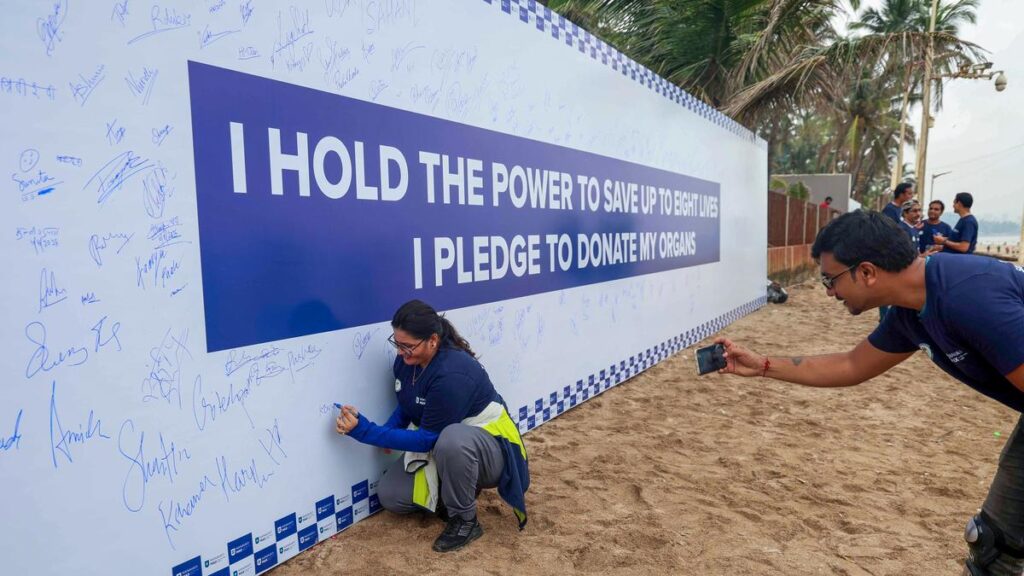970x125
Organ transplantation is one of modern medicine’s greatest triumphs. A miracle of 20th century medicine, organ transplants are the gold standard treatment for terminal and irreversible organ failure. Yet, in India, more than half a million lives are lost every year for lack of a suitable donor organ.
970x125
This is despite the number of transplants performed every year, from 4,990 in 2013 to 18,378 in 2023. However, this number includes only 1,099 deceased organ donors after brain death. The Indian organ donation rate per million population is only 0.8, which is much lower than the highest rate of over 45 per million population in Spain and the United States. As I have often said, losing a fellow Indian due to the lack of an organ for transplant is a preventable fatality we cannot, and must not accept.
Helping families to overcome their fears
The reasons for this gap between demand and supply include deep-seated myths and misconceptions that discourage families from consenting to donation after a patient’s death. To change this situation, we must launch sustained education and awareness campaigns.
Editorial | Justice and equality: On organ transplantation, gender skew
Many families believe that donating one’s organs disfigures the body, preventing proper funeral rites. Families worry about the deceased person’s physical integrity being affected or of violating religious traditions. In reality, organ retrieval is performed with the utmost respect and care, ensuring that the donor’s appearance is preserved for viewing and final ceremonies. Health-care teams work within the framework of cultural practices, and leaders across faiths have publicly affirmed that organ donation is an act of compassion aligned with spiritual values espoused in all religions.
Another widespread myth is the fear that some families harbour that hospital staff might prematurely declare brain death just to harvest organs. This is a complete falsehood as a declaration of brain death requires strict adherence to a structured legal and clinical framework established under the Transplantation of Human Organs and Tissues Act, 1994. This involves strict medical criteria, a multidisciplinary board of experts, defined clinical assessments repeated after a stipulated interval, and thorough documentation on prescribed forms. The procedure is robust, transparent and ethically sound to ensure an unbiased confirmation of irreversible neurological death, an upholding of ethical standards, and the enabling of timely organ retrieval for transplantation.
The issue of age and health
Age and health status often give rise to another misunderstanding — that only young accident victims can donate organs. While certain organs perform best when recovered from younger donors, many organs and tissues, such as the kidneys, liver segments, the lungs, and the corneas can come from older donors or those who die of natural causes. Every contribution counts, with even donations of bone, skin and heart valves able to save or dramatically improve lives.
Addressing these myths requires a sustained focus. Audio-visual campaigns on television and social media can reach younger audiences. Using real donor families and transplant recipients in communication can show how transplants save real lives. Community workshops, led by trained counsellors, can provide safe spaces for questions and discussions, directly addressing concerns about funeral rites, medical protocols, and donor eligibility.
Donation awareness must be instilled in schools and colleges from a young age. By integrating organ donation education into the life sciences and ethics curriculum, we can nurture a culture of giving. Peer-to-peer education empowers students to take ownership of the message, fostering empathy and debunking myths through relatable storytelling.
Health-care professionals themselves must also become champions of organ donation. Regular training sessions can equip physicians, nurses and other health-care staff with the knowledge and the skills to initiate compassionate conversations with families of potential donors. At Apollo Hospitals, we have dedicated transplant coordination teams who guide families through the complex decision-making process with sensitivity and clarity.
Steps to ensure public confidence
I strongly believe that India needs a collective national will to bridge the massive gap between organ supply and demand. The push given to organ donation on this day must be sustained going forward through policy reforms and grass-roots engagement. One promising policy proposal is presumed consent, adopted in countries in Europe such as Spain and Croatia, with significant success. Under this system, every adult is considered an organ donor unless they register an objection. Alongside presumed consent, robust family support systems and grievance redress mechanisms are vital to ensure public confidence and ethical oversight.
Organ donation is not just a medical procedure. It is a profound act of charity. And to donate one’s organs so that others may live is perhaps the noblest legacy one can leave.
The time to act is now. Every eligible adult must register as a donor, and every family must pledge to respect their decision. For patients with end-stage disease where an organ transplant is the only treatment, organ donation is a lifeline. By busting myths and with an unwavering commitment, we can ensure that no Indian loses their life for want of an organ. Today, on World Organ Donation Day (August 13 every year), let us all pledge to embrace this cause as a shared responsibility.
Dr. Prathap C. Reddy is Founder-Chairman, Apollo Hospitals Group
Published – August 13, 2025 12:08 am IST
970x125

